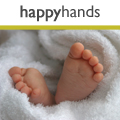Pregnancy Clinic
Travel
Car, train, boat, plane: safe pregnancy travel
Using the time before your baby arrives to visit friends and family can be important to you. However, whichever form of travel you use, make sure you keep yourself and your baby healthy. Also make sure you have checked out our *Overseas travel in pregnancy article if you are planning a longer journey.
Travel by car
No matter how big your bump is, you must use a seat belt during pregnancy. Wear the lap strap under your tummy but always keep it buckled up.
Make sure you take regular breaks – whether you are driving or are a passenger – so you can stretch your legs. Airbags do not need to be deactivated as they should not pose a risk to your bump, but if you are of very small build you might choose have them deactivated under normal circumstances anyway.
As you get into later pregnancy, if you suffer from breathlessness or cramps, ask your midwife if driving is still safe.
Travel by train
Probably the best option for pregnancy travel, train journeys give you the chance to walk around regularly, to safely eat small snacks and sip drinks, and to relax. Make sure you don’t stay in one position for too long and don’t worry about the lurching motion when walking down the aisle – these small bumps are minor and should not affect your baby.
Travel by plane
Airlines will have varying conditions under which they are willing to carry pregnant passengers. Check with the airline before you pay for any tickets, in case you are not going to be allowed onto the flight. For example, British Airways’ terms mean that women with no pregnancy complications can fly up to the end of the 36th week, for multiple pregnancy this comes down to the end of the 32nd week. However, beyond 28 weeks, the airline requests a letter from your midwife or doctor stating the due date and that you have no complications.
At any point during your pregnancy, if you feel unwell, do consult your GP before flying – even if the tickets are already booked.
Also, if you suffer from the nasal stuffiness common in pregnancy, make sure you take some sweets to suck should cabin pressure make you uncomfortable.
Take lots of breaks walking around the cabin, and drink water. Also it might be a good idea to take your own snacks in case you do not want or cannot eat the food the airline provides.
Travel by boat
Many couples during pregnancy opt to travel closer to home and take a ferry to Europe rather than flying.
You might be more prone to sea sickness whilst pregnant. As a precaution carry motion sickness wrist bands with you. These are very cheap and available from any pharmacy. They will probably also be available onboard the ship or ferry.
Bear in mind that like airlines, companies who take you by sea will have specific restrictions on when they will carry a pregnant woman. For example, P&O have certain routes where they do not take pregnant women after 28 weeks. Some shorter routes may be permissible for those later into their pregnancy, but written medical permission may be required, so check with your travel company before you pay for any tickets.
Related Articles
The Pudding Club Maternity Hire
Buyer's Guide to From-Birth Pushchairs
Nurseries: learning through fun
What is the Early Years Foundation Stage?
10 children's days out this summer
Business profile: Sally Robertson – Organic at Heart
Related Products
Lala and Bea, Organic Nourish Oil
Related Forum Topics
Forums: Pregnancy
Re: fussy eater
Clare, Mother of 2, London
Reproaching a stranger for bad behaviour to their child.
Patricia6
Re: Has anyone tried Zita West's fertility supplements? Or what else worked for you?
Guider, Mother of 1, Leicestershire
Have Your Say
Be the first person to comment on this article, just post a comment below.





In order to post a comment you need to be a member. Join Now | Sign in